Grand Piece Symphonique, Op. 17 - August 31, Extended Organ Voluntary
Sunday, August 31 Organ Voluntary: Grande Pièce Symphonique, Op. 17 - Franck
Long before César Franck composed his famous Symphony in D minor—one of the great symphonies of the Romantic era—he wrote a bold and groundbreaking work for organ: the Grande Pièce Symphonique. Completed in 1863, it was his first attempt to write a large-scale symphonic work (clocking in at almost a half hour) for the organ. In fact, this work laid the foundation for the entire tradition of the French “organ symphony” that would flourish in the hands of composers like Charles-Marie Widor and continue unbroken for almost 100 years.
What made this transformation possible was a new kind of organ. In 1859, Franck became organist at Sainte-Clotilde in Paris, where he encountered one of Aristide Cavaillé-Coll’s magnificent instruments. With its rich tones and expressive capabilities, the Cavaillé-Coll organ was like a symphony orchestra under the fingers and feet. Inspired by this instrument, Franck set out to write music that treated the organ symphonically—with long forms, recurring themes, and richly layered textures. The Grande Pièce Symphonique is a sweeping work that feels more like a transcribed symphony than a keyboard piece.
The work divides into three discrete movements. In the final movement, Franck directly references the opening of the last movement of Beethoven’s 9th symphony. One critic called this closing section a “joy of faith”—a phrase that captures the emotional and spiritual journey of the entire piece. And this glorious organ symphony is the perfect way to fully show off the entire palette of colors of our Freiburger organ. Run time is about 25 minutes.
Summer Organ Series Schedule
August 17: “Christmas in August” – Pastorales and Noëls from 18th century Italy, Spain and France
August 24: The Weaver’s Tale – works by American organist John Weaver
August 31: Grande Pièce Symphonique, Op. 17 – C. Franck
